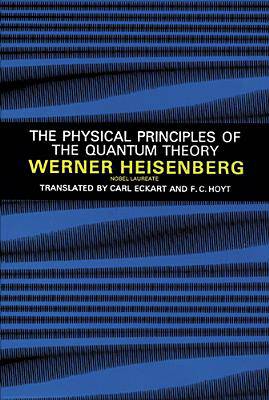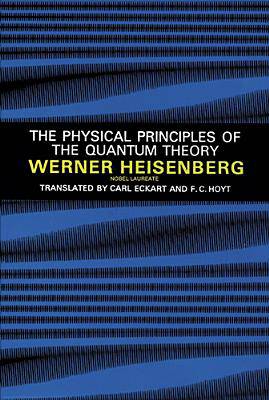
- Retrait gratuit dans votre magasin Club
- 7.000.000 titres dans notre catalogue
- Payer en toute sécurité
- Toujours un magasin près de chez vous
- Retrait gratuit dans votre magasin Club
- 7.000.0000 titres dans notre catalogue
- Payer en toute sécurité
- Toujours un magasin près de chez vous
Description
The contributions of few contemporary scientists have been as far reaching in their effects as those of Nobel Laureate Werner Heisenberg. His matrix theory is one of the bases of modern quantum mechanics, while his "uncertainty principle" has altered our whole philosophy of science.
In this classic, based on lectures delivered at the University of Chicago, Heisenberg presents a complete physical picture of quantum theory. He covers not only his own contributions, but also those of Bohr, Dirac, Bose, de Broglie, Fermi, Einstein, Pauli, Schrodinger, Somerfield, Rupp, -Wilson, Germer, and others in a text written for the physical scientist who is not a specialist in quantum theory or in modern mathematics.
Partial contents: introduction (theory and experiment, fundamental concepts); critique of physical concepts of the corpuscular theory (uncertainty relations and their illustration); critique of the physical concepts of the wave theory (uncertainty relations for waves, discussion of an actual measurement of the electromagnetic field); statistical interpretation of quantum theory (mathematical considerations, interference of probabilities, Bohr's complementarity); discussion of important experiments (C. T. R. Wilson, diffraction, Einstein-Rupp, emission, absorption and dispersion of radiation, interference and conservation laws, Compton effect, radiation fluctuation phenomena, relativistic formulation of the quantum theory).
An 80-page appendix on the mathematical apparatus of the quantum theory is provided for the specialist.
Spécifications
Parties prenantes
- Auteur(s) :
- Editeur:
Contenu
- Nombre de pages :
- 208
- Langue:
- Anglais
- Collection :
Caractéristiques
- EAN:
- 9780486601137
- Date de parution :
- 01-06-49
- Format:
- Livre broché
- Format numérique:
- Trade paperback (VS)
- Dimensions :
- 137 mm x 203 mm
- Poids :
- 204 g

Les avis
Nous publions uniquement les avis qui respectent les conditions requises. Consultez nos conditions pour les avis.






